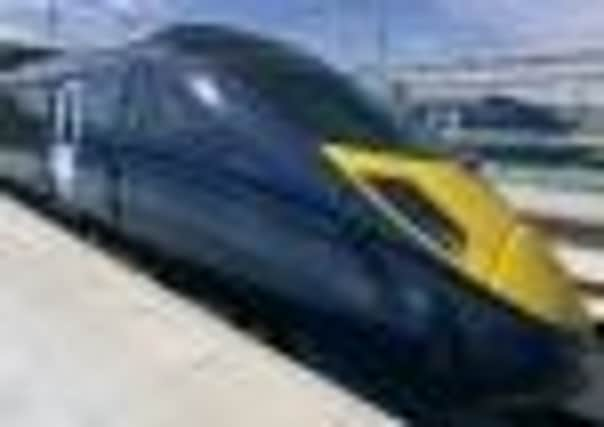Pro-HS2 group’s anger as institute says scheme is “economically flawed”.


A report by the Institute of Economic Affairs (IEA), released on Tuesday, says HS2 will require a £1,000 contribution per income taxpayer and is not commercially viable.
But the Yes to High Speed Rail group has dismissed many of the report’s findings as “myths”.
Advertisement
Hide AdAdvertisement
Hide AdProf David Begg, director of the Campaign for High-Speed Rail, said: “I am hugely disappointed and shocked by the IEA’s analysis of high-speed rail released today.
“This is a weak regurgitation of weak research carried out by the Taxpayers’ Alliance in February, which has not stood up to public or industry scrutiny since.
“Just like them, the IEA declare that the scheme will cost £1,000 per taxpayer.
“This is grossly disingenuous, as it fails to account for fare revenues, private investment and generated taxation that will offset the public investment.
Advertisement
Hide AdAdvertisement
Hide Ad“The IEA have completely failed to grasp the wider benefits of the high-speed rail project, which will create jobs, boost investment and spread the economic wealth of this country to places outside of the TPA heartlands of London and the south east.”
HS2 is expected to cost £32 billion, of which £17 billion would be spent on creating a line for 250mph trains from Birmingham to London by 2026.
There are further plans for a Y-shaped extension to Manchester, Leeds and possibly further north which would be completed by about 2033.
The IEA has described HS2 as a “political vanity project”, which is based on “bogus assumptions”.
Advertisement
Hide AdAdvertisement
Hide AdDr Richard Wellings, the IEA’s deputy editorial director and one of the report’s authors, said: “HS2 is another political vanity project like Concorde or the Millenium Dome - being ploughed ahead with complete disregard for properly thought-through commercial prospects or the mounting opposition to it.
“Its environmental credentials are questionable, its projected passenger figures suspect and its proposed regenerative effects highly dubious.”
Members of Coventry and Warwickshire Chamber of Commerce are split on the issue of HS2.
Chief executive Louise Bennet said there had been no clear message of support nor has there been an overwhelming anti-HS2 feeling among members.
Advertisement
Hide AdAdvertisement
Hide AdShe added: ”Businesses tend to be in favour of investment in improved transport infrastructure because the economic benefits tend to be obvious.
“In this instance, our members have not been convinced.”